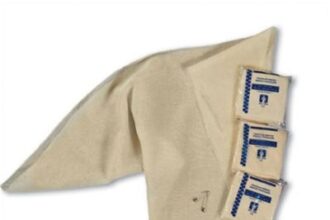An acquaintance of mine once lost all the feeling in his toes for three months from “trench foot.” He was lucky, in the end, that he suffered no permanent damage.
How did this happen? Well, you might guess that he froze his toes off in pursuit of an extreme adventure — high-altitude mountaineering or dog sledding across the North Pole — but no. He was backpacking, in June, near his home in Wyoming.
An acquaintance of mine once lost all the feeling in his toes for three months from “trench foot.” He was lucky, in the end, that he suffered no permanent damage.
How did this happen? Well, you might guess that he froze his toes off in pursuit of an extreme adventure — high-altitude mountaineering or dog sledding across the North Pole — but no. He was backpacking, in June, near his home in Wyoming.
He started his five-day hike at a popular entry into the Wind River Range in sunny, warm, even hot conditions. In a matter of hours he gained enough elevation that he encountered winter snow that hadn’t yet melted off, so he ended up hiking through freezing puddles of water on the trail. His boots became saturated with cold, icy water, and still hiked on. On the second day it started to snow and it grew much harder to take the time and effort to stay warm and dry.
His feet got cold when the icy water poured in over his boot tops; at some point they stayed cold and he didn’t do anything about it. And so his feet stayed cold for hours and hours, setting the stage for trench foot, more accurately known as “immersion foot” or a “nonfreezing cold injury.”

The physiology is simple. In response to the moisture and temperature, his body acted to narrow the tiny blood vessels that fed his toes. This is a standard reaction to cold exposure called “vasoconstriction.” Smaller tubes meant less blood got through, so the other tissues in his feet, the skin, bones, nerves, muscles, did not get the oxygen that they needed to stay healthy. Nor did they get cleaned of the normal cellular waste they generated, which is supposed to be flushed away by the blood, filtered by the kidneys and eliminated through urine. This waste built up.
The first tissue to be affected drastically was nerve tissue, which seemed to stop functioning. He perceived this as numbness that went away that evening when he warmed his feet, then came back the next day and persisted after the second cold day no matter how much he warmed his feet. In fact, the sensation of numbness in his toes persisted for about three months after he finished the trip!
His skin became red, itchy and painful when warmed, but that was about it. His feet did return back to ‘normal’ after three months; and he didn’t experience immersion foot at its worst: ulcers, infection of those ulcers, permanent nerve dysfunction, tissue death, amputation. All of these are possible.

You’d be better off not repeating his mistakes. The main rule is to never tolerate cold, wet feet. This starts with planning your activity and choosing appropriate footwear. Boots and shoes should fit well (and not squeeze the feet), insulate for the cold, and keep socks dry. Because any boot can become saturated if conditions are wet enough, consider using vapor barrier socks for your dampest slogs. Or, you can improvise these by using plastic bags to line your boots.
If your feet do get wet, take the time to dry them off, massage them warm again and change or at least wring out your wet socks. If you’re camping, sleep in a pair of dry socks that you keep at the bottom of your sleeping bag to guarantee that your feet get to stay warm and dry overnight at least.
Simple precautions and a little discipline will help you enjoy the wet conditions and not suffer from the cold.






